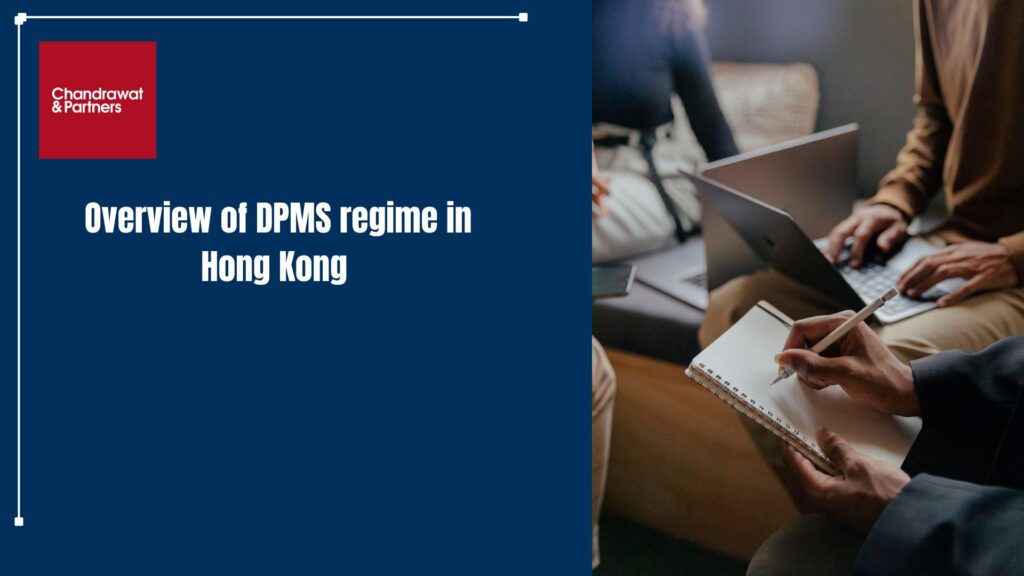Edit Content
Edit Content
Edit Content

Hong Kong’s Legislative Council has approved proposed amendments to the Anti-Money Laundering and Counter-Terrorist Financing Ordinance (“ALMO”), introducing a new registration regime for dealers in precious metals and stones (“DPMS”) on 1 January 2023. The amendments are part of the Anti-Money Laundering and Counter-Terrorist Financing (Amendment) Bill 2022, which also introduces a new licensing regime for virtual asset exchanges, which will take effect on 1 March 2023. According to the aforementioned 2022 bill, a DPMS is defined as (under section 532U of the act):
However, a DPMS carrying out a transaction below 120000 Hong Kong Dollars, need not register. Logistics service providers are not considered as DPMS simply for importing or exporting PMS on behalf of others in the course of their business.
Precious metals in a manufactured or unmanufactured state will include gold, silver, platinum, iridium, osmium, palladium, rhodium or ruthenium. Precious stones will include diamonds, sapphires, rubies, emeralds, jade, or pearl. The definition of a precious product includes any finished product made of precious metals or stones, with at least 50% of its transaction price attributable to the metal or stones. It does not cover products part of medical devices or industrial equipment. Precious-asset-backed instruments are certificates or instruments backed by precious metals, stones, or products. The definition excludes virtual assets and financial assets already regulated under the Securities and Futures Ordinance.
The AMLO has been amended to introduce a two-tier registration system for DPMS, requiring businesses dealing in precious metals and stones in Hong Kong with transactions totaling at least HK$120,000 to register with the Commissioner of Customs and Excise (“CC&E”).
DPMS who intends to engage in non-cash transactions at or above HK$120,000 during business is required to register under Category A. A Category A registrant will be required to pay an annual fee to the CC&E on or before each anniversary of the date of the effective date of its registration. Category A registrants who fail to comply with the requirements for registrants will be subject to disciplinary sanctions, other than a pecuniary penalty.
DPMS with cash transactions above HK$120,000 are required to register under Category B, which includes a fit-and-proper test and anti-money laundering supervision. This registration is valid for three years, and after expiry, DPMS must meet the fit-and-proper requirements to renew it. There are 3 key steps for the registration regime.
Failure to conduct regulated DPMS activities with a valid Category A or B registration is an offence and is liable to a maximum of HK$100,000 fine and six months imprisonment. If a Category B registrant breaches the requirements set out in AMLO, disciplinary sanctions, including reprimand and pecuniary penalty not exceeding HK$500,000, will be imposed.
Overseas DPMS must submit a cash transaction report (“CTR”) to the Department of Finance for transactions with a total value of at least HK$120,000 made in Hong Kong within the first calendar day following the transaction or the earliest time the DPMS leaves Hong Kong. The CTR must include the overseas DPMS, their representatives, transaction information, the buyer, and its representatives. Failure to file a CTR may result in a fine of HK$50,000 and three months imprisonment. Overseas DPMS will be exempted if:
1.1 either
1.1.1 is not ordinarily resident in Hong Kong (in the case of an individual); or
1.1.2 is an overseas company without registration under the Hong Kong Companies Ordinance (Cap. 622) (in the case of a legal person); and
2. does not have a place of business in Hong Kong; and
2.1 The person does not carry on PMS business in Hong Kong for a total of more than 60 calendar days in any given year.
The DPMS registration requirements will not apply to government, banks, licensed pawnbrokers, SFC-licensed corporations, authorized insurers, licensed insurance broker companies, individual insurance agents, licensed agencies, licensed stored value facilities, system operators, and settlement institutions of a designated retail payment system, as their PMS business is ancillary to their principal business.
For more information or queries, please email us at
[email protected]

Managing Partner
Copyright © Chandrawat & Partners. All Rights Reserved.
Copyright © Chandrawat & Partners. All Rights Reserved.

Chandrawat & Partners stands as a dynamic and rapidly expanding full-service firm, specializing in the delivery of exceptional professional and corporate services to a diverse clientele, both foreign and local. We proudly represent companies and individuals across a wide spectrum of sectors through distinct entities established in various countries worldwide.
ASIA
AFRICA
EUROPE
NORTH AMERICA
SOUTH AMERICA
OCEANIA
Chandrawat & Partners uses cookies to run our site and improve its usability.
By using our site you agree to our use of Cookies.